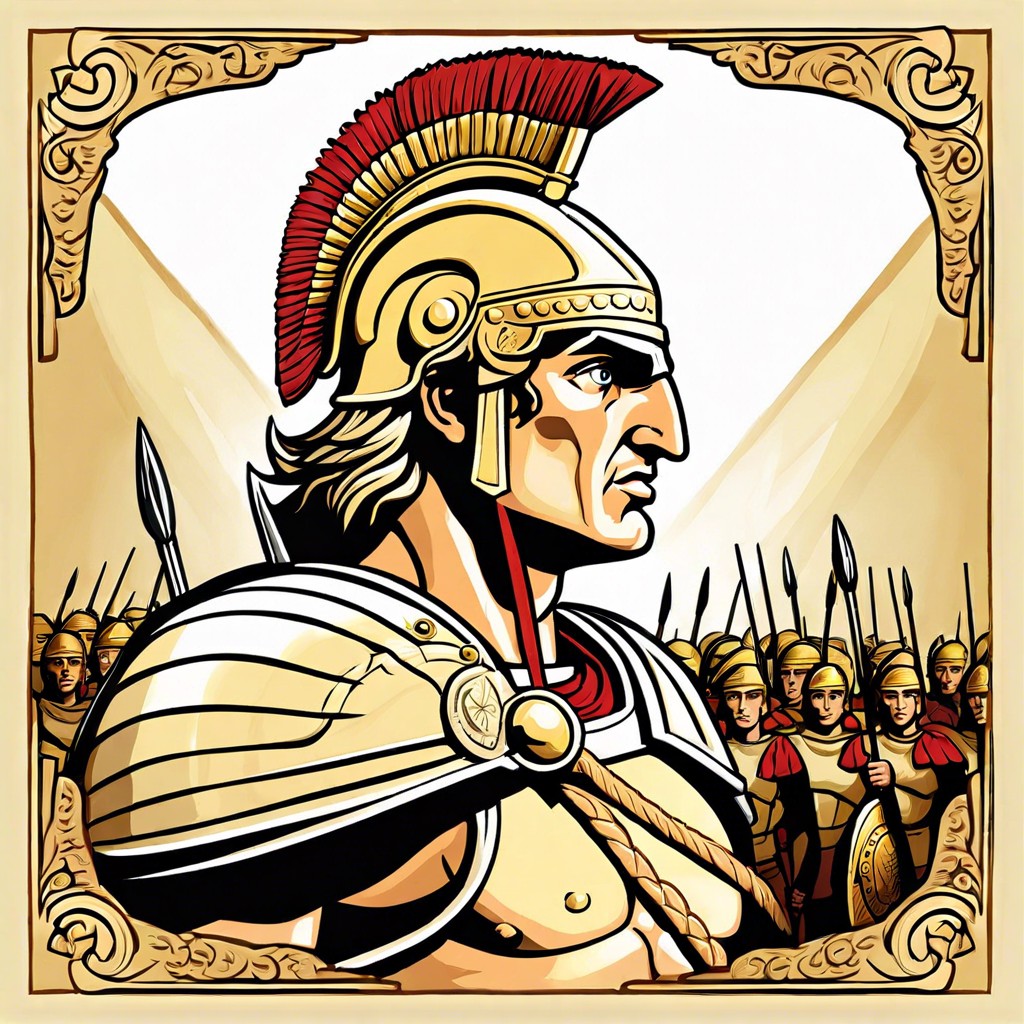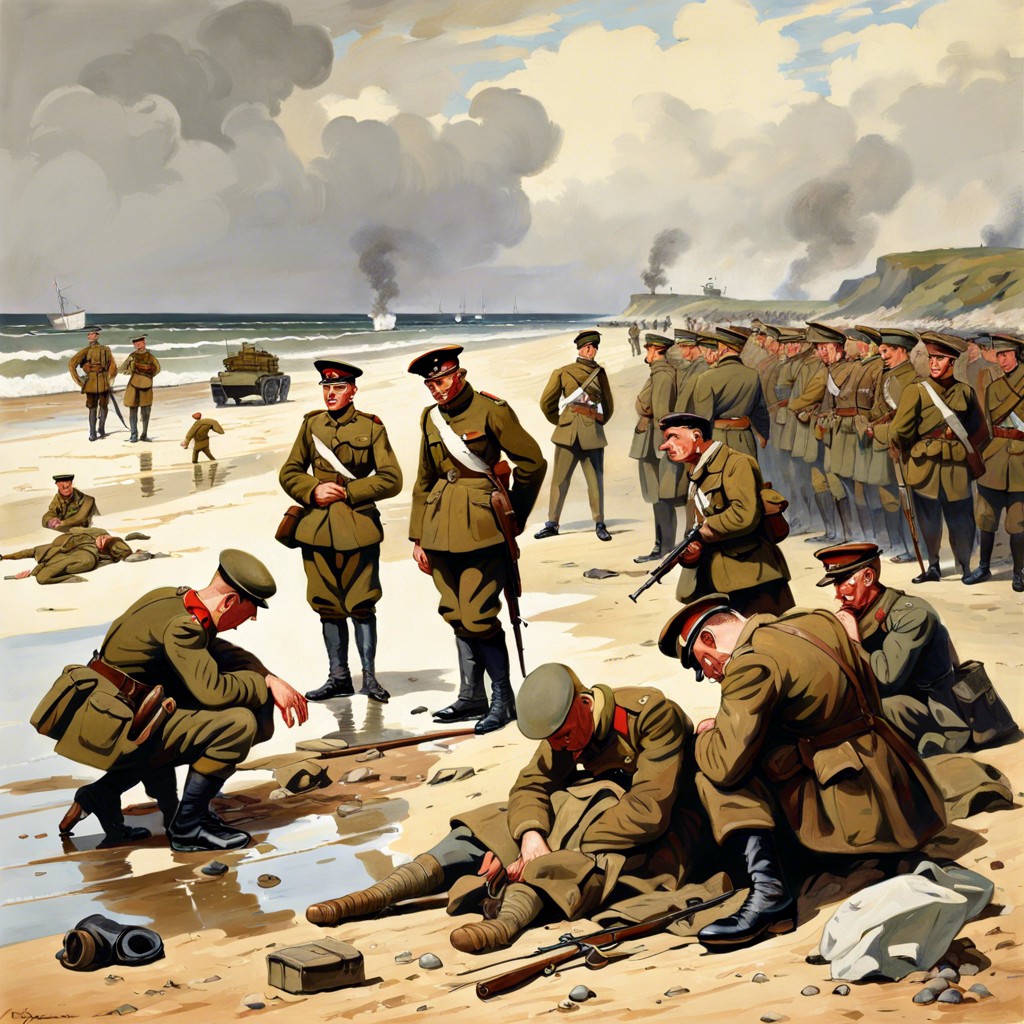If Alexander the Great had lived longer, the world might have seen an even larger, more diverse empire influenced by his innovative military strategies and cultural integration.
What if Alexander the Great had the elixir of life and a few extra decades to spare? Our imaginations run wild with images of an even vaster empire, unprecedented political strategies, and a cultural revolution that would make even the most eclectic art collector blush. Journey with us as we unravel the tantalizing possibilities—from military innovations to the very fabric of his successor states—that his extended reign might have woven into the tapestry of history. Buckle up; history’s about to get a lot more epic.
Key takeaways:
- Larger empire: Greece to India, challenging China, stabilized regions.
- Refined governance: Centralized admin, organized bureaucracy, unified legal system.
- Hellenization: Cultural fusion, language, arts, philosophies, educational hubs.
- Military prowess: Enhanced tactics, phalanx evolution, combined arms, psychological warfare.
- Successor states: Unity, stability, cultural integration, reduced regional tension.
Expansion of the Empire

Alexander had an insatiable thirst for expansion. If he’d lived longer, imagine the vast territories he could have claimed. We might have seen his armies trotting through the streets of Rome, sipping on espressos. Just kidding about the espressos, but Rome was definitely in his sights.
Think about it: an empire stretching from Greece to perhaps all of India, and even challenging China. His military genius knew no bounds, and his charisma would’ve likely roped in more alliances than rivalries.
And those regions that were already under his control? They’d have had more time to stabilize and develop under his centralized rule, rather than fragmenting into warring factions.
All in all, his longer reign would have painted a drastically different map, one where “The Great” wouldn’t just be a title, but an understatement.
Political Strategies and Governance
Imagine Alexander with a few more years on the clock. He could have refined his approach to governance, beyond mere conquest. First up: centralized administration. Instead of stretching his generals thin, he might’ve developed a system, integrating local rulers while maintaining overall control. Think of it as ancient outsourcing.
Next, let’s talk about bureaucracy. Even legends need paperwork. A longer-lived Alexander might’ve established a more organized and efficient bureaucracy to manage his sprawling empire. This would lessen revolts—because, let’s face it, nobody revolts when they have their permits in order.
And how about the economy? With more time, he might’ve standardized currency across regions, boosting trade and minimizing squabbles over who’s got the shiniest coins.
Finally, legal systems. Local laws could have been harmonized with Greek principles, creating a more unified legal framework. No more legal patchwork quilt.
In short, Alexander living longer could’ve meant a tighter ship—an empire not just mighty in battle, but also savvy in the fine art of governance.
Cultural Integration and Hellenization
Imagine Alexander with a few more decades to sprinkle his Greek magic. Athens chic yoga studios in India? Maybe.
He had this knack for blending cultures—like a master chef, but instead of spices, he used languages, arts, and philosophies. Greek became the lingua franca. Statues of Zeus would be buddies with local deities.
Picture the library of Alexandria on steroids. More time with Alexander could’ve meant even more scrolls, documenting a rich tapestry of human experience across continents, binding East and West in a way textbooks dream of.
The melting pot effect would skyrocket. Persian dresses might trend in Macedonia. Greek tragedies performed in Babylon’s open-air theaters. Cross-cultural exchange? Epic.
Now, consider education. Knowledge hubs in Asia might spring up, inspired by Athens’ intellectual atmosphere, knitting scholars from varied backgrounds into a unified quilt.
A lasting legacy of fusion, where eastern wisdom and western zeal co-mingle in harmony. Fascinating, isn’t it?
Military Innovations and Campaigns
Imagine Alexander the Great, the ultimate rockstar of ancient military leaders, given more time to dominate the battlefield. With longer life, he would have likely cooked up even more inventive military tactics that left his enemies scratching their heads in confusion and awe.
Firstly, Alexander’s use of the phalanx formation—already a staple in his campaigns—might have seen even greater evolution. Picture soldiers standing shoulder to shoulder with spears twice as long and helmets twice as shiny, forming an impenetrable wall of perfection. The man had a knack for tweaking everything to Instagram-worthy levels of strategy.
Next, Alexander was a big fan of combined arms tactics, blending infantry, cavalry, and siege weapons like a master chef mixing disparate ingredients into a winning dish. If given more time, we could have expected the creation of war chariots with built-in gadgets or even early models of trebuchets that could launch boulders and occasional farm animals.
Then there’s his penchant for psychological warfare. Alexander loved a good mental game almost as much as grabbing real estate. Whether through spreading rumors to demoralize foes or laying traps that would make Wile E. Coyote envious, his innovative mind wouldn’t have stopped buzzing. Think outwitting more kings, converting more generals, and keeping every battlefield conversation just a tad more interesting.
Impact On Successor States
Imagine a world where Alexander’s generals aren’t playing a chaotic game of “Who Gets What?”. That’s what we’d likely see if he had lived longer. Without his untimely death, the mad scramble for pieces of his empire wouldn’t have happened.
First off, unity! A longer reign by Alexander could’ve meant a more solidified empire, less fragmented by squabbling successors with more ambition than common sense. The power struggles, or dare we say, ancient soap operas, might never have taken center stage.
Next, stability! Instead of the formation of warring Hellenistic states (think ancient rival reality shows), a centralized administration under Alexander could have maintained order. Perhaps a stable dynasty would’ve emerged, making ancient politics less of a circus.
Finally, influence! He could have laid deeper cultural and political roots in conquered territories, reducing the friction between Greek and local customs. This means fewer regional revolts and more collaborative prosperity.




